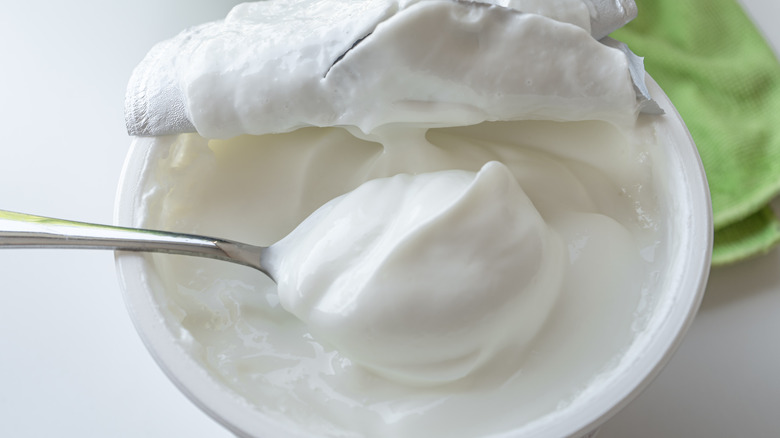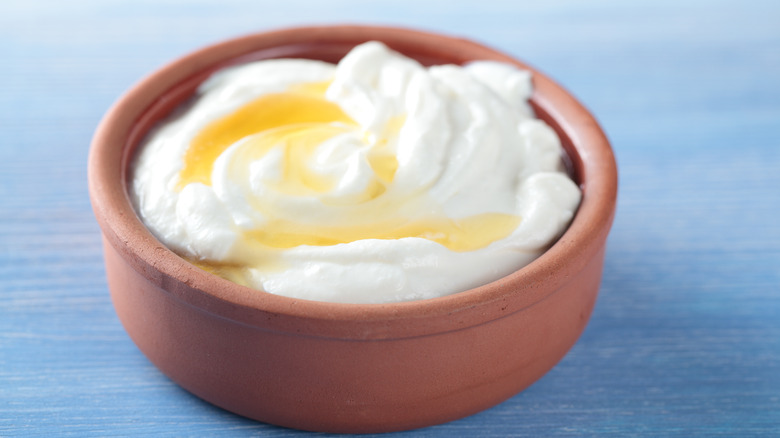Is Greek Yogurt Exclusively Made In Greece?
Yogurt is a staple food at the breakfast table these days. We flavor it with vanilla, honey, or brown sugar and serve it alongside fresh fruits, granola, and other goodies. It's known for its creamy, silky, and slightly sour flavor. Britannica says that yogurt can be made from cows (most popular in the U.S.), sheep or goats (their milk is used mostly in Europe and the Middle East), or water buffalo (common in India). Yogurt is not really limited to any one place in the world, it is considered a relatively healthy breakfast food by Healthline, and offers a sizable amount of protein, casein, whey, fat, and a ton of nutrients you need to take you through the day.
The benefits yogurt brings to the table are not new discoveries. According to BC Dairy, yogurt is an ancient dish and first appeared in the human diet around the Neolithic period (5,000 B.C.) in the region we now consider modern Turkey. It's believed to have been invented by accident but the Turks fell in love with it since it was a great way to preserve milk. The ancient Greeks (especially the lower class) were great lovers of yogurt and called it "oxygala" (οξύγαλα). Today you might spot "Greek" yogurt lining the shelves of dairy products at your local grocery store, but the yogurt you're buying may not actually be as Greek as you think.
Not made in Greece
As it turns out, a significant amount of Greek yogurt sold in countries like the United States is not legitimately made in Greece. Now, you're probably thinking to yourself: "Then why in the world do they put 'Greek' on the label?" It's a valid question! Matador Network reports that in Greece, yogurt (straggisto, Σπιτική γεύση) is made using a particular method, one where they strain the whey out. The Greek company Fage was the first to label their yogurt "Greek", but Epicurious says that Chobani – probably one of the best-known Greek yogurt brands in the United States — took the "Greek" label from the European brand despite the fact that the owner was Turkish and the Chobani brand was built in America.
According to Bon Appétit, today's Greek yogurt just indicates that the brand has used the straining technique widely used in Greece and throughout the Middle East. The strained dairy (strained using a fine mesh cloth) is much thicker and more flavorful than non-strained yogurt, but many American "Greek" yogurt brands artificially thicken their yogurt instead of straining. As of today, Olympiana Yogurt is one of the few authentic Greek yogurts (manufactured in Greece and made using the straining method) sold by companies in the United States.

